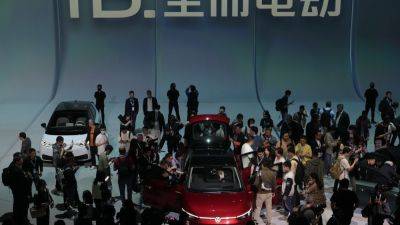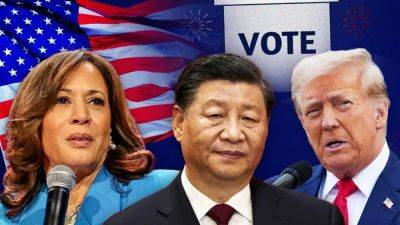The EU will impose duties on electric vehicle imports from China by Thursday
BRUSSELS (AP) — The European Union is set to impose duties on imports of electric vehicles from China by Thursday after talks between Brussels and Beijing failed to find an amicable solution to their trade dispute.
Electric vehicles have become a major flashpoint in a broader trade dispute over the influence of Chinese government subsidies on European markets and Beijing’s burgeoning exports of green technology to the bloc.
“By adopting these proportionate and targeted measures after a rigorous investigation, we’re standing up for fair market practices and for the European industrial base,” European Commission Executive Vice-President Valdis Dombrovskis said on Tuesday.
“In parallel, we remain open to a possible alternative solution that would be effective in addressing the problems identified and (World Trade Organization)-compatible,” he added. The duties would stay in force for five years, unless an amicable solution is found.
According to the commission, which manages trade disputes on behalf of the 27 EU member countries, sales of Chinese-built electric cars jumped from 3.9% of the EV market in 2020 to 25% by September 2023, in part by unfairly undercutting EU industry prices.
The duties on Chinese manufacturers will be 17% on cars made by BYD, 18.8% on those from Geely and 35.3% for vehicles exported by China’s state-owned SAIC. Geely has brands including Polestar and Sweden’s Volvo, while SAIC owns Britain’s MG, one of Europe’s bestselling EV brands.
Other EV manufacturers in China, including Western companies such as Volkswagen and BMW, would be subject to duties of 20.7%. The commission has an “individually calculated” rate for Tesla of 7.8%.
The EU’s retaliatory duties have run into opposition in Germany, which has







